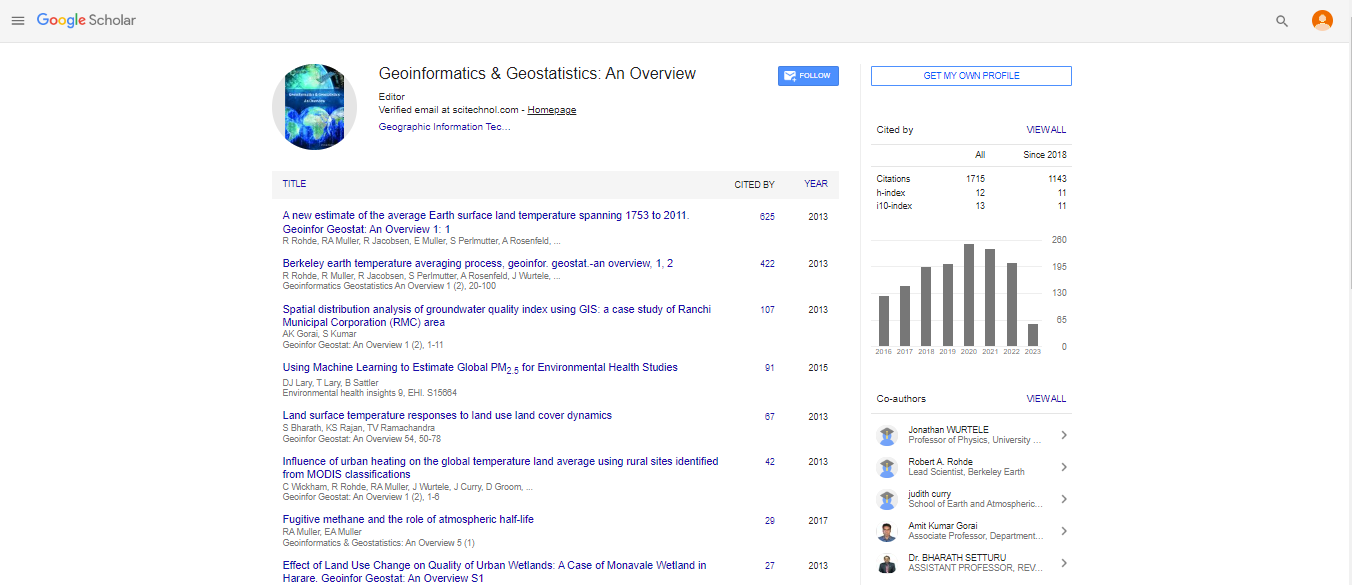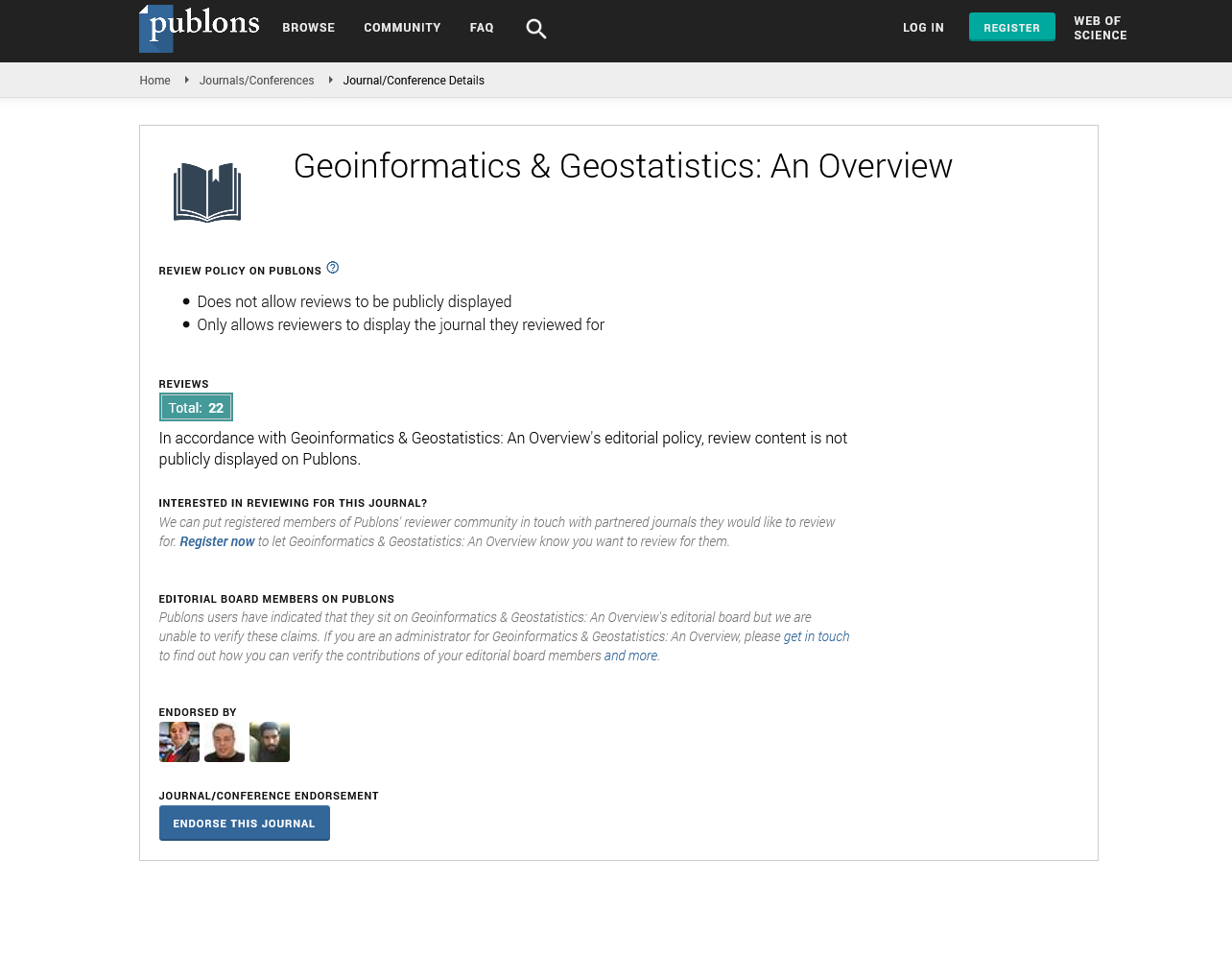Research Article, Geoinfor Geostat An Overview Vol: 1 Issue: 4
The Interest of Coherence from Radar SAR Images in the Follow-Up of Urban Extensions of FocÅŸani City (Romania)
| K Hachemi1*, M Visan2 A Ozer3, F Grecu2, K Anouche4, M Jurchescu5 and M Nouacer6 | |
| 1Laboratoire de Géographie Physique (LGP), Université Paris-Est.Université Paris 1 -Panthéon- Sorbonne, France | |
| 2Faculty of Geography, University of Bucharest, Geomorphology-Pedology-Geomatics Department, Bucharest, Romania | |
| 3Géomorphologie et Télédétection, Département de Géographie, Université de Liège, Belgium | |
| 4Department of Architecture, Science and Technology Oran University (USTO), Bir El-Djir, Algeria | |
| 5Institute of Geography, Geomorphology & Natural Hazards Department, Bucharest, Romania | |
| 6Faculty of Electronics and Computer Science, University of Science and Technology Houari Boumediene), Bab Ezzouar Algiers, Algeria | |
| Corresponding author : Hachemi K LGP, UMR 8591 CNRS, Bellevue (Meudon), Laboratoire de Géographie Physique (LGP), Université Paris-Est. Université Paris 1 -Panthéon- Sorbonne, France Tel: +33145075556; Fax: +33145075830 E-mail: hachemi_kamel@yahoo.fr; kamel.hachemi@u-pec.fr |
|
| Received: May 16, 2013 Accepted: December 09, 2013 Published: December 16, 2013 | |
| Citation: Hachemi K, Visan M, Ozer A, Grecu F, Anouche K, et al. (2013) The Interest of Coherence from Radar SAR Images in the Follow-Up of Urban Extensions of Focsani City (Romania). Geoinfor Geostat: An Overview 1:4. doi:10.4172/2327-4581.1000113 |
Abstract
The Interest of Coherence from Radar SAR Images in the Follow-Up of Urban Extensions of Foc�?ani City (Romania)
Usually, the coherence image obtained by processing SAR (Synthetic Aperture Radar) images is indirectly used in the interferometry to identify and delimit different areas that disturb the phase of the radar wave. The phase plays the role of indicator and in the same time separator between areas where the elements within the pixel are unstable and the stable. Considering this principle, we use here these images with the purpose to follow the expansion of the city of Foc�?ani, Romania (urban areas). The results show the very good coherence for the urban area, which appears in white in greyscale visualisation corresponding to maximum values of coherence. The analysis of the coherence images at different time intervals allowed us to characterise the stability of the Foc�?ani city (without considerable extension) for almost 10 years (1995/2005). Instead, we distinguished many buildings that were multiplied towards the periphery and outside of the city. During the same period, we found out that in downtown, there were urban renovations represented by green spaces. We also found that the three pairs, which were processed by the image acquired the 01/31/2005 have a low coherence, which allows us to state that the rainfalls can be the cause of the incoherence. We also observed that the incoherence is more important within the pairs formed by ERS-1 and ERS- 2 than the pairs formed by ERS-2 and ERS-2, even if the time interval between them is 24 hours (the temporal decorrelation is null or identical). This study confirms the interest of the coherence image to identify the spatial and temporal decorrelations of the pairs processed by the interferometry technique (InSAR). The role of coherence images intervenes also to distinguish the urban areas from the green or water covered areas.
 Spanish
Spanish  Chinese
Chinese  Russian
Russian  German
German  French
French  Japanese
Japanese  Portuguese
Portuguese  Hindi
Hindi 
